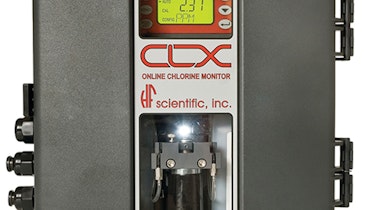Interested in Safety?
Get Safety articles, news and videos right in your inbox! Sign up now.
Safety + Get AlertsPlant operator Herminio Padilla Jr., 48, died Saturday at the East Central Regional Water Reclamation Facility in West Palm Beach, Fla., after reportedly falling through a walkway grate into an open tank. His body was recovered from a pipe 18 hours after he went missing.
“It’s an operator’s worst nightmare,” says former plant supervisor Scott Galloway in a Palm Beach Post article. “The water could be coming at you at such a rapid pace. It’s like a trough.”
Padilla went missing around 2 a.m. on Saturday. Plant operators spent hours draining the tank and underground pipes before they found Padilla’s body.
Detective Lori Colombino, city police spokeswoman, stated the death appears accidental.
Source: Palm Beach Post
Flushable Wipes Case Dismissed
A flushable wipes case in California against manufacturer Kimberly-Clark, which challenged the company’s “flushability” claim on its disposable wipes, was recently dismissed. In Davidson vs. Kimberly-Clark, the plaintiff claimed flushing the wipes created a substantial risk that a consumer could create a clog or cause damage to household plumbing or municipal pipes.
Judge Phyllis J. Hamilon of the Northern District of California dismissed the case, saying the plaintiff did not provide specific example of harm. The court found the plaintiff used general allegations instead of personal examples. Also, the plaintiff’s claim was based on hypothetical injury.
According to an article on Lexology.com, “The court found that the plaintiff’s citation to articles on the Internet discussing problems with clogs and blockages at wastewater treatment facilities, and comments by consumers posted on Kimberly-Clark’s website, were insufficient to meet Rule 9(b),” which states a plaintiff must allege facts showing why the claim is false.
The case is considered a victory for companies defending against false advertising claims.
Source: Lexology
EPA Provides Clean Water Act Clarifications
The EPA released the final draft of a report that defines which bodies of water may be regulated under the Clean Water Act. The report, titled “Connectivity of Streams and Wetlands to Downstream Waters: A Review and Synthesis of the Scientific Evidence,” focuses on surface and shallow subsurface connections including small or temporary streams, nontidal wetlands and open waters. The report states that regardless of size or frequency of flow, streams are connected to and therefore influence downstream waters. It concludes that individual streams and wetlands should be evaluated within the context of other steams and wetlands in a watershed.
To read the entire report, click here.
Slush Creates Problems for Lake Erie Plant
Officials at Avon Lake (Ohio) Regional Water dealt with a seasonal problem earlier this month when slushy ice clogged the utilities intake screens at its Lake Road plant. Customers were asked to conserve water during the incident.
Last year, the utility declared an emergency when frazil ice — a collection of loose, needle-shaped ice crystals — created an intake problem. This year, with temperatures in the low 30s, slush formed when a southern wind created turbulence in Lake Erie. Todd Danielson, the chief utilities executive, said it’s beneficial for the plant when Lake Erie freezes.
“It helps calm the water so you don’t have this slush,” he said in The Chronicle-Telegram. “Having a calmer water that’s covered with ice is better for us.”
A four-man dive team was deployed to remove slush from the plant’s 12 screens. The utility kept customers informed about the event through social media outlets.
Source: The Chronicle-Telegram





